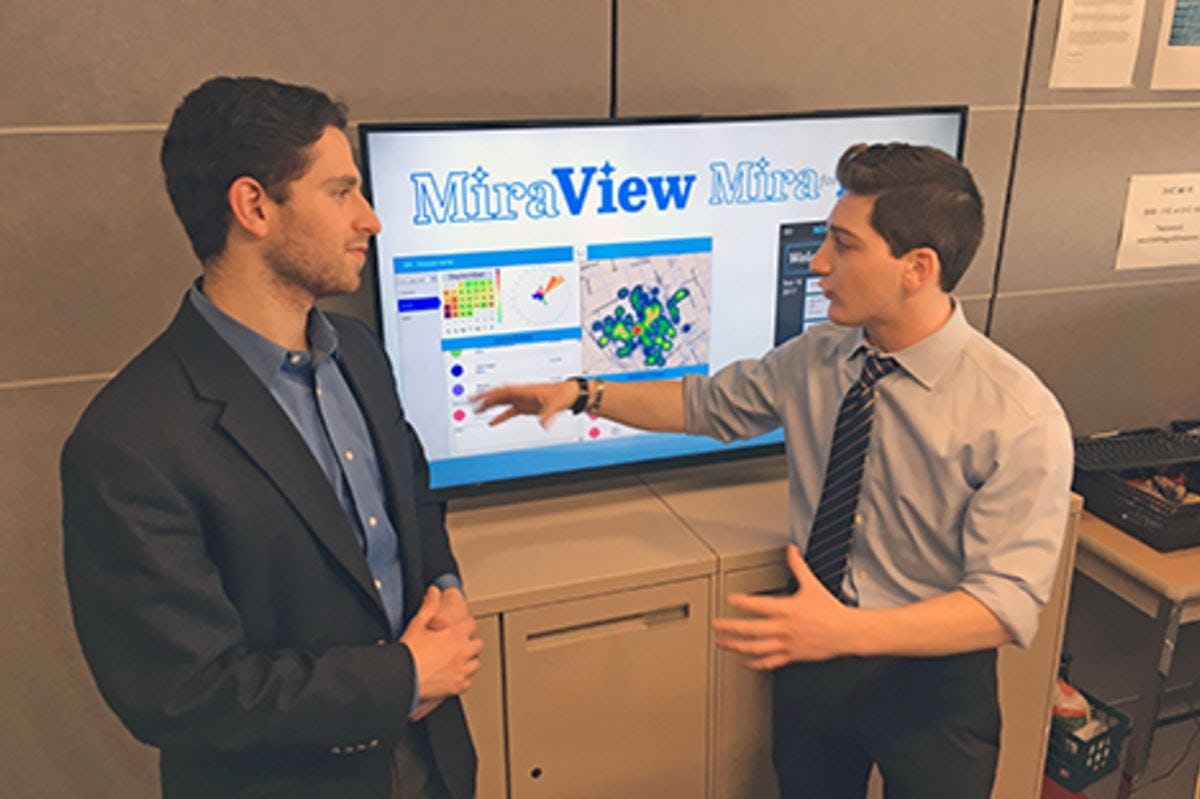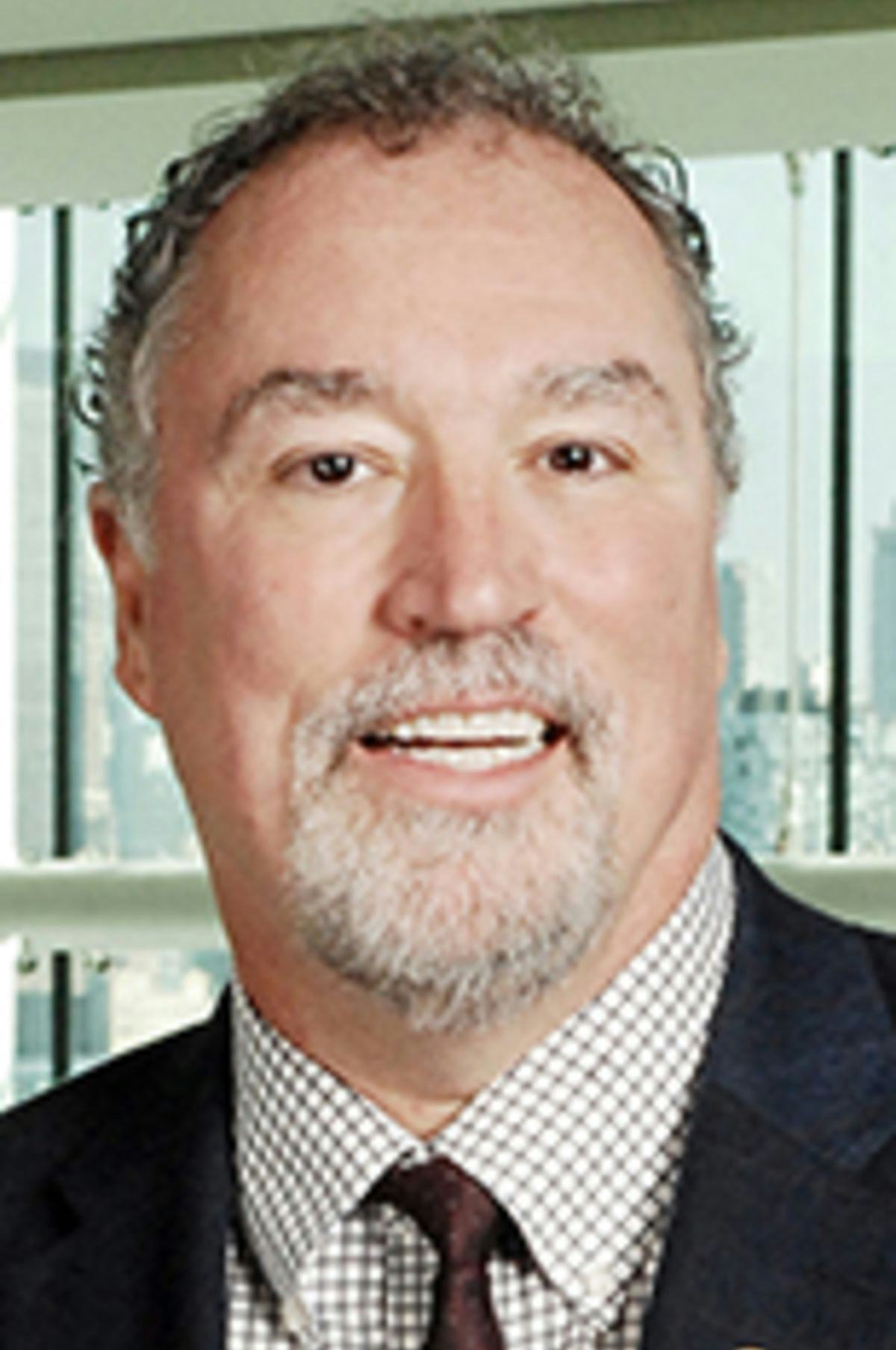Stevens Entrepreneurs Hoping to Bring Tech Solution to Therapists' Toolbox
Business Students Developing App, Digital Dashboard to Enhance Recovery for Patients with PTSD
Can technology help therapists better treat patients suffering from post-traumatic stress disorder?
That’s the idea behind MiraView, a company created by a group of business students at Stevens Institute of Technology that aims to give mental health caregivers new tools to better identify symptom triggers and assist in patient recovery.
MiraView is a two-part system. Through an app, patients can access a crisis assistant tool that reassures them in the event of a flashback or dissociative episode, and can log their symptoms. Meanwhile, as a patient uses the tools, the app builds symptom reports for his or her therapist, who can evaluate treatment options based on a rich set of data.
“It’s about better identifying the main triggers for symptoms, and ensuring patients have support outside the office that carries over into the office,” said co-founder CJ Internicola, a sophomore who is studying Business & Technology.
A large pool of underserved patients
While PTSD is often under-reported, especially among veterans, it’s estimated that nearly 8 million people in the United States suffer from the disorder. Seth Kirschner, a senior in the Business & Technology program, said there is no technology in the market aiming to bridge the communication gap between therapist and patient, as treatment often relies on the patient’s memory of events that happened days or weeks ago.
“We’re confident in our product and in our business model, but also important to us is this sense of social entrepreneurship,” he said. “We’re helping people who are really struggling. That’s something we care about.”
In fact, the inspiration for the business came from a friend of Internicola’s, who suffers from PTSD. The original concept, which he started as a high school student, was a simple app that would be able to reassure patients in the middle of an episode.
Coming to the Stevens School of Business, he said, nurtured his entrepreneurial spark and helped him explore the idea for MiraView in depth. The business is now housed in the Stevens Venture Center as its founders prepare for a crowdfunding campaign in the spring.
“I got immersed in the entrepreneurship culture here at Stevens — I’ve learned so much about what it means to develop a real technology product and build a technology firm,” Internicola said. “There’s a different mindset among students here — Stevens gives us the assets and environment we need to discover new problems and create technology-driven solutions to those problems.”
Stevens faculty make a difference
Both Kirschner and Internicola said Stevens faculty play an important role in nurturing future entrepreneurs and challenging students to think critically about the value their business concepts pose in the real world. An entrepreneurship course with Dr. Thomas Lechler, for instance, introduced Internicola to the value proposition canvas.
“Working on a canvas, and talking to Professor Lechler and learning from his experiences in entrepreneurship, helped us develop our entire concept, our sales pitch, our investor deck, and will ultimately be the message of our crowdfunding campaign,” he said. “Stevens faculty understand what technology exists and how that influences the business world.”
Stevens faculty also have significant strength in healthcare, such as Dr. Donald Lombardi, a distinguished researcher of healthcare management. In his work with the federal Department of Veterans Affairs and hospital systems in New Jersey and nationwide, Dr. Lombardi has a keen sense for the industry’s needs, and how a concept like MiraView represents real value.
While electronic medical records, or EMR, systems have become a staple in doctors’ offices in the last 10 years, “they lack three important components — they’re not particularly user friendly, they require someone in the office to have coding skills, and they didn’t engender trust among patients,” he said.
MiraView, Dr. Lombardi said, is “the second generation” of EMRs: “Because it is the converse of those three things — user friendly, anyone who knows how to surf the internet can use it and it’s lockdown safe — it truly represents a new and improved version of EMRs.”
As the students work to unveil their product in time for the annual Stevens Innovation Expo, scheduled for May 2, Kirschner and Internicola credited the Stevens culture of innovation and entrepreneurship with moving the business forward alongside their busy lives as students.
“If there’s one school where I’ll be able to start something great, Stevens has to be the place,” Internicola said. “There’s an idea in the culture here that people should build things and create things, and that definitely resonates with us.”




